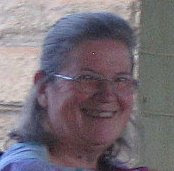Current PracticesDowry payment happens when possible, even after 3 kids. Attended a celebration where the groom's parents were away getting medical care in the states and the grandfather stood in for them. Over 200 people at the event to witness the cutting of the shoulder (of a leg of goat), an act that made the marriage finally, completely legal.

Smog, traffic jams morning and night, highway expansion, traffic control...signs and symptoms of big city life anywhere. True too of Nairobi, the capitol, which is clean with beautiful buildings in center, and has a game preserve within city limits
House construction evolved from building with mud and sticks, to wood planks, then iron sheets. Now commonly cut stone, usually one story with fireplace, or multistory with fire place, floor plan often English style. Roof lines on older homes much like in Uganda, roof in one plane, raised at the front to drain to the back. As in many places in the world, owners build in stages, often beginning with the foundation, stock-piling materials for the next push a bit at a time.

People are buried in cemeteries when they don't have their own land. All bodies are taken to the mortuary in the local hospital with burial about a week after death so people/family can come. Long car procession=well known and liked.
Children named: first boy after paternal father, second boy after mother's father, 3rd boy after paternal oldest brother, 4th boy after mother's oldest brother. Girls in same sequence, first girl after maternal mother, etc.
face me taxi : bench. Seats 10 (legally) in back of small pickup, bell system used to let driver know when to stop and go Matatus like the ones in Kampala are small vans that legally seat 14 passengers and a driver (often with more than that)

Traveling for over 10 hours with christian music on mp3 player hooked to the car sound system, no repeat music and all in English (day trip to Nairobi). This made being caught in evening commute traffic for 3 hours bearable.
Traveled miles in the back of a pickup seeing the country side and towns around















